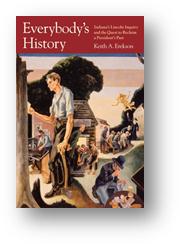Everybody’s Centennial
[Cross-posted from transformations.utep.edu]
In December 2011, UTEP President Diana Natalicio appointed me as her special assistant for centennial program implementation, a job description that includes supporting the 2014 Commission, carrying out historical work (researching, writing, speaking), and overseeing internal coordination (planning, budgeting, and following up). For the internal work, I will seek to:
- Integrate centennial activities into the daily work of the university, whether the participants are staff (merit evaluation), faculty (tenure and promotion), or students (grades).
- Encourage self-interest by not inviting “service” but rather helping participants ask “How can I use the centennial to accomplish the work I already do in _________________?”
- Welcome all contributions from all contributors, from paid employees to passionate volunteers. I hope people will ask “What can I do better and with more passion than anybody else?” and then do it.
- Organize skills and interests into project-specific teams, from oral history to museum exhibits to opera performances.
 In crafting this implementation philosophy I am explicitly taking a page from the work of the Lincoln Inquiry, a group of over 500 Americans who studied Lincoln’s Indiana boyhood nearly one hundred years later during the 1920s and 1930s. I wrote about them in Everybody’s History and now I am trying to apply their work to my situation today. The Lincoln Inquiry organized hundreds of volunteers on the basis of skills, enthusiasm, and urgency (chapter 1). Its participants pursued oral histories with those still alive who had known Lincoln (chapter 3) and crafted a well-researched narrative (chapter 4) that they defended in public (chapter 5). I don’t foresee the need to compete with other historians and biographers to tell UTEP’s story (chapter 2) and I really hope to avoid their greatest shortcoming–the inability to integrate their research findings into a coherent synthesis suitable for a wide range of public audiences (chapter 6).
In crafting this implementation philosophy I am explicitly taking a page from the work of the Lincoln Inquiry, a group of over 500 Americans who studied Lincoln’s Indiana boyhood nearly one hundred years later during the 1920s and 1930s. I wrote about them in Everybody’s History and now I am trying to apply their work to my situation today. The Lincoln Inquiry organized hundreds of volunteers on the basis of skills, enthusiasm, and urgency (chapter 1). Its participants pursued oral histories with those still alive who had known Lincoln (chapter 3) and crafted a well-researched narrative (chapter 4) that they defended in public (chapter 5). I don’t foresee the need to compete with other historians and biographers to tell UTEP’s story (chapter 2) and I really hope to avoid their greatest shortcoming–the inability to integrate their research findings into a coherent synthesis suitable for a wide range of public audiences (chapter 6).
I will talk about the book and its application to centennial planning this Friday, February 24, at 3:00 p.m. in room 323 of the Liberal Arts Building on the UTEP campus.

